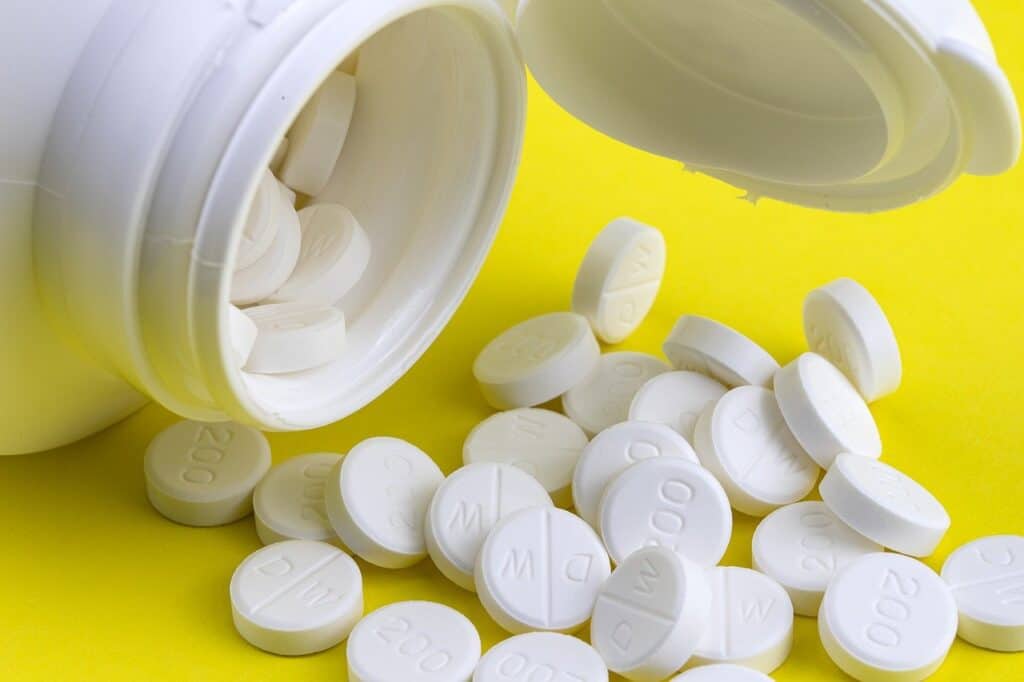Leaky gut symptoms | Leaky gut therapy | The immune system and its relationship to autoimmune diseases
Leaky gut syndrome is also called leaky gut or leaky gut.

How do you know if you have leaky gut?
People with leaky gut syndrome often have digestive complaints such as constipation or gas and bloating after eating. But not everyone has intestinal problems.
Would you be surprised if I told you that one in 8 people have intestinal problems and 7 have intestinal related complaints?
In fact, it is a systemic condition with consequences like joint pain pain, brain fog, inflammation all over the body, fibromyalgia, fatigue, skin conditions etc.
Is it possible to have a leaky gut without intestinal complaints?
Yes, it is also possible to have leaky gut syndrome and not have any digestive symptoms at all. Instead, you may feel that your hands and feet swell after eating, your muscles are tight and stiff in the morning, and you experience brain fog and difficulty thinking after eating certain foods.
These symptoms are the result of what is called systemic inflammation, which simply means that irritating molecules flow through your body after you eat certain foods.
Even if you get symptoms that aren't related to your gut, like joint pain or headaches, these symptoms could be caused by your diet.
Elena Karnaukhova
Healthy intestinal flora and the immune system
Much research has been done on the bacteria that live in the gut, how they grow, develop and keep our immune system functioning properly. It seems that the gut flora of young children plays a major role in helping your immune cells develop properly and in the right balance.
Good bacteria are key players in the relationship between your immune system cells, both in the first line of defense and in the second.
Beneficial bacteria also stimulate the production of a protective antibody that is one of the most important defense mechanisms in your gut. It's called immunoglobulin A, a substance made by the immune system to fight foreign substances.
A link between leaky gut and autoimmune diseases

Good bacteria in the gut also make short-chain fatty acids, which nourish and strengthen all cells in your digestive tract, keeping them healthy.
They also help form your gut wall, the protective barrier that helps keep food in your gut and not share it with the rest of your body when you eat.
These good bacteria work in tandem with your immune cells to immediately protect you from harmful infections and maintain the function of that barrier so that unwanted foreign proteins and infectious particles cannot enter the bloodstream.
If this barrier is compromised, you can develop so-called leaky gut syndrome, a condition that can lead to autoimmune diseases such as MS, Sjogren's syndrome, Addison's disease, lupus, celiac disease, vitiligo, rheumatoid arthritis etc.
Leaky gut & gluten in autoimmune diseases
Our good bacteria also make enzymes that improve digestion. In particular, they help the body break down gluten, a protein found in wheat, barley, spelled, rye, and kamut.
Gluten is a highly toxic protein that often triggers an allergic reaction or other immune response and is a major problem for people with autoimmune diseases.
A link between stomach acid and the immune system

Gastric acid produced in the stomach helps activate your digestive enzymes.
Food from the stomach travels to the upper part of the small intestine called the duodenum. This is the area where the enzymes of your pancreas and the bile of your gallbladder come together with the food to further digest proteins, carbohydrates and fats.
These enzymes need a low pH (acidity) to work properly. If your stomach acid or digestive enzymes aren't doing their best, they won't finish their job and partially digested food will end up further down the gut.
Letting these particles travel where they don't belong increases the problem of leaky gut syndrome and increases the risk of food sensitivities and autoimmune reactions.
Have studies even shown that people taking stomach protectors (antacids) and proton pump inhibitors have an increased risk of developing food sensitivities.
Now you can see why antacids, which many people think help their stomach, actually do the opposite and harm your immune system.
Influence of stomach protectors on the immune system
So if you regularly take stomach protectors (antacids), try to reduce them slowly. Do not you worry. You don't have to choose between heartburn and a stomach with the right acidity. There are other ways to treat heartburn.
What is commonly known as heartburn is caused by a worn down stomach lining (called the mucous membrane), making it raw and sensitive to the amount of acid the stomach is supposed to contain.
There are many causes that can damage the stomach lining, including stress, alcohol, the stomach bacteria H. pylori, infections, and medications.
If the stomach lining is damaged, you will feel the acid. You wouldn't feel it if the mucous membrane was thick and healthy. Surprisingly, many people with reflux or heartburn actually have too little stomach acid, a condition called hypochlorhydria.
For example, researchers at the University of Antwerp in Belgium found that people with type 1 diabetes and an autoimmune thyroid disease were three to five times more likely to develop autoimmune gastritis than people who had neither condition.
Example from my practice and the leaky gut

A few years ago a woman came to my practice to lose weight. She had tried everything she said and nothing seemed to work. After asking a lot of questions (which I actually do to get a broader picture of possible disorders). She had no physical complaints, no intestinal disorders, only her hair was falling out.
That is an alarm from the body that something is not right! Nutrients are not absorbed, but why?
Through stool and food intolerance tests, we found out she had high intolerances to gluten, lactose, eggs, and apples. If you understand now, she had leaky gut syndrome.
First we started with the elimination diet, then we removed what did not belong in the intestinal flora, such as pathogenic bacteria, fungi and parasites.
Finally, we rebuilt the intestinal flora. After 6 months we had it tested again, the leaky gut was gone, healthy mucous membranes, more energy, no more hair loss. In addition, as a gift lost several kilograms!
Has the leaky gut been recognized by mainstream medicine?

Leaky gut syndrome is not yet a recognized diagnosis in the medical community – but I am confident it will one day be recognized, thanks to the vast number of studies already conducted worldwide.
If you have leaky gut symptoms, I advise you to consult an orthomolecular or naturopathic specialist about the options for treatment.
What are symptoms for the leaky gut?
Common symptoms for the leaky gut:
- food sensitivities
- digestive problems
- autoimmune disease
- thyroid dysfunction
- poor absorption of nutrients
- inflammatory skin conditions
- brain-related problems such as depression and autism.
More leaky gut symptoms read here
The leaky gut diet and supplements.

If you can understand there is no solution to the leaky gut complaints.
Work together with a specialist, someone who has experience and can guide you well. Most orthomolecular therapists have a good understanding of and experience with leaky gut syndrome.
* More about testing, the leaky gut diet, food intolerance and supplements read here.
Finally functioning intestines?
Do you want to make your intestines function optimally again and thus give a boost to your health?
Do you want to work with me? Fantastic! contact me to determine the best strategy for you.

Leaky gut therapy | Gut flora and skin disorders | Leaky gut diet
- The leaky gut diet
- Leaky gut and autoimmune diseases
- How can you increase your resistance? Webinar
- Treat RA (arthritis) naturally
- Why am I so tired?
- Abdominal bloating
- Do the elimination diet together
- Leaky gut symptoms
- IBS symptoms
- What helps against heartburn?
- Panic attacks, what to do?
- Gout in the foot
- Leaky gut syndrome symptoms
- IBS diet and treatment
- What helps against heartburn
- Do you have healthy intestines?
- leaky gut diet
- treat eczema from the inside out
- leaky gut syndrome symptoms
- leaky gut therapy






12 thoughts on “Leaky gut symptomen | Leaky gut therapie |Leaky gut dieet”
Pingback: Leaky Gut Symptoms / Investigations / Natural Treatment
Pingback: IBS and Spastic Bowel Symptoms. Natural treatment of IBS
Pingback: Stomach pain after eating. What is going on? Natural solutions
Pingback: Prolonged diarrhea and fatigue. what to eat How do you stop diarrhea?
Pingback: Treating Eczema From The Inside - Natural Medicine Practice Elena
I don't actually have any digestive problems, but I do have problems with my joints and very tired. Could this be leaky gut for me?
That can be for sure. One in 8 people suffer from intestinal problems (statistics from the lab), the other 7 may have intestinal-related complaints such as joint pain, fatigue, mood swings, etc.
I didn't suffer from stomach pain either, but fog in my head and couldn't remember anything, sometimes a little greasy stool.
Fats are probably not absorbed. I need more information to answer.
Feel free to call me. Gr.Elena
Pingback: Gout in the foot - Natural Medicine Practice Elena
Pingback: Parasites in your gut - Natural Medicine Practice Elena
Pingback: Autoimmune Diseases - Natural Medicine Practice Elena